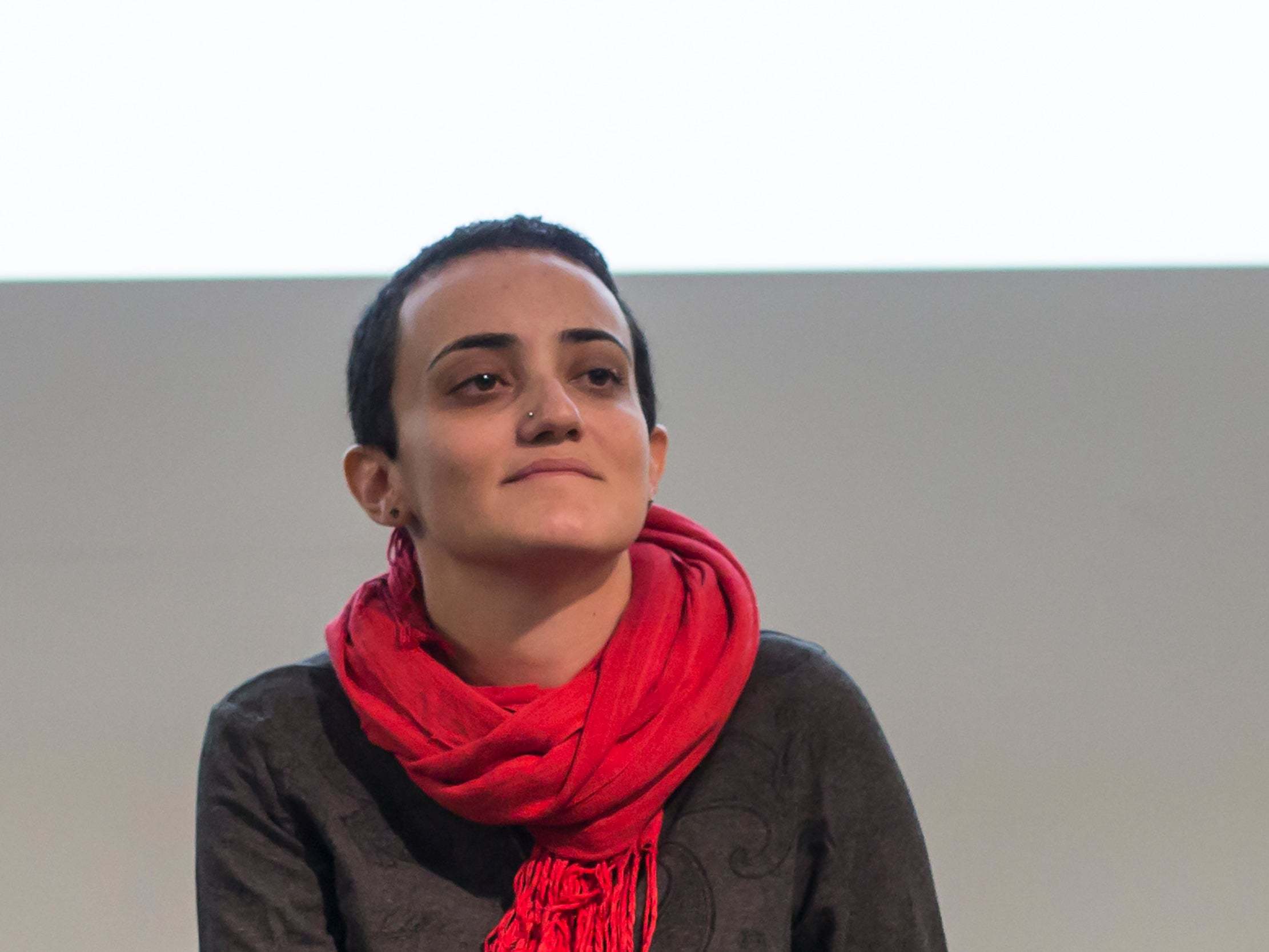Egyptian journalist arrested while interviewing jailed activist's mother outside prison in Cairo
Mada Masr editor-in-chief Lina Attalah, who co-founded one of country's few remaining independent news outlets, was detained while speaking to mother of prominent political prisoner. She was released on bail

Egyptian authorities arrested the editor of one of the country’s few remaining independent news outlets as she worked outside a notorious prison, releasing her hours later on bail.
Lina Attalah, editor-in-chief of the online news outlet Mada Masr, was speaking with the mother of prominent activist Alaa Abdel Fattah outside Cairo’s maximum-security Tora prison on Sunday morning when Egypt regime enforcers detained her, according to the news outlet.
The 37-year-old was released on of bail of around £105, Mada Masr said.
The outlet added she was scheduled to be questioned by prosecutors Monday morning.
The detention underscores the wretched state of press freedoms and civil liberties under the rule of Egyptian strongman Abdel-Fattah el-Sisi, who has been in power since toppling the country’s first freely elected government nearly seven years ago.
Mada Masr was shut down and Ms Attallah and other members of the staff were arrested last November, prompting a global public outcry and their subsequent release.
In March, The Guardian’s Cairo correspondent was forced to leave the country after authorities revoked her press accreditation over a story which cited a report suggesting Egypt was underreporting its coronavirus cases.
It remains unclear whether Ms Attalah was targeted or that Egyptian police were acting on what appear to be standing guidelines to arrest, intimidate, and harass any journalists.
The International Press Institute, an advocacy group, said in a report issued late last year that conditions were worsening.
“The government stepped up its intimidation tactics, raiding offices of news organisations and arresting journalists,” it said. “Altogether, more than 60 journalists are languishing in Egyptian jails in inhumane conditions.”
Earlier this month, a young filmmaker died of illness inside Tora prison, which houses hundreds of political prisoners, sparking calls for a hunger strike throughout the facility. Prosecutors claimed he died from drinking medical alcohol which has been falsely touted as a cure for coronavirus.
Ms Attalah was arrested around noon as she was interviewing Laila Soueif, the mother of Mr Abdel-Fattah, who is on a 35-day hunger strike protesting the authorities cancelling all his family visits
Ms Soueif she was making her 22nd attempt to deliver supplies, including medicines and rehydration salts.
The activist, who served five years in prison on specious national security charges, was re-arrested last September amid a rare outbreak of protests against Mr Sisi’s rule.
Mr Abdel-Fattah’s sister Mona Seif spoke to police officers at the scene who told her they arrested the prominent journalist as they were worried she “might write something about what she saw.”
“I argued with them that many friends of ours come here regularly. They write and post photos, all of it is published on the news,” she wrote on Twitter.
“Not only do they not let us check up on Alaa, but also they arrested Lina, as if it’s against the law to come to [Tora]”.
Mr Sisi has squashed all opposition to his rule and sought to shutter independent media. His regime is accused of grave human rights violations, including forced disappearances, torture, extrajudicial killings and war crimes against civilians in Egypt’s Sinai Peninsula.
The leaderships of the United States, United Kingdom and France continue to back Mr Sisi despite the country’s violation of human rights norms that they condemn in other countries.
Both Egypt and its Arabian Peninsula backers, including the United Arab Emirates and Saudi Arabia, purchase advanced weapons from powerful western firms with political connections in Washington, London and Paris.
US president Donald Trump referred to Mr Sisi as his “favourite dictator” ahead of a meeting with him in New York last year.
Join our commenting forum
Join thought-provoking conversations, follow other Independent readers and see their replies
Comments
Bookmark popover
Removed from bookmarks